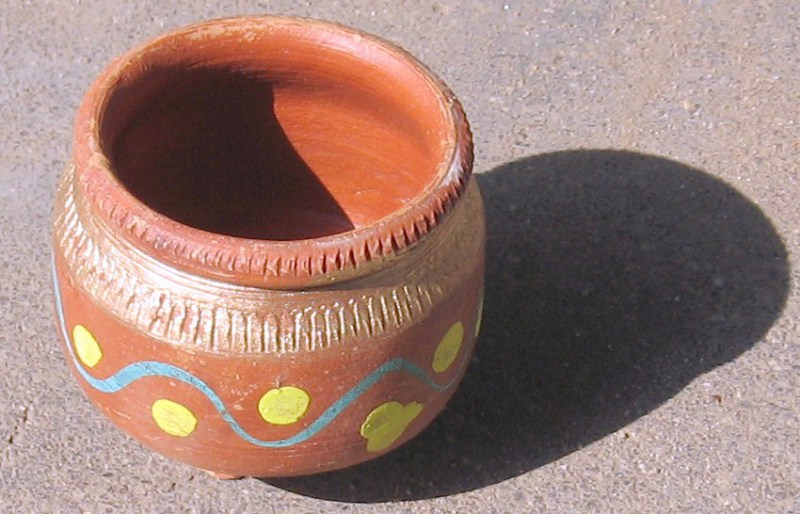Blog

Romans Bible Guide – Day 25
March 10, 2016
Previously, in Romans: Paul has begun exploring whether God can still be seen as just and merciful and effective in fulfilling his promises – in short, righteous – even though most Jews seemed to have rejected their Jewish Messiah, Jesus.
Romans 9:19-29
19 You will say to me then, “Why then does he still find fault? For who can resist his will?” 20 But who indeed are you, a human being, to argue with God? Will what is molded say to the one who molds it, “Why have you made me like this?” 21 Has the potter no right over the clay, to make out of the same lump one object for special use and another for ordinary use? 22 What if God, desiring to show his wrath and to make known his power, has endured with much patience the objects of wrath that are made for destruction; 23 and what if he has done so in order to make known the riches of his glory for the objects of mercy, which he has prepared beforehand for glory— 24 including us whom he has called, not from the Jews only but also from the Gentiles? 25 As indeed he says in Hosea,
“Those who were not my people I will call ‘my people,’
and her who was not beloved I will call ‘beloved.’”
26 “And in the very place where it was said to them, ‘You are not my people,’
there they shall be called children of the living God.”
27 And Isaiah cries out concerning Israel, “Though the number of the children of Israel were like the sand of the sea, only a remnant of them will be saved; 28 for the Lord will execute his sentence on the earth quickly and decisively.” 29 And as Isaiah predicted,
“If the Lord of hosts had not left survivors to us,
we would have fared like Sodom
and been made like Gomorrah.”

Points of Interest:
- ‘Why then does he still find fault?’ – Paul’s anonymous question asker is back, asking what seem like pretty fair questions. If God has the prerogative to be kind to some and reject others, can we really blame people who seem to be rejecting God?
- ‘who are you… to argue with God?’ – So this is one way to shut down the conversation, but it’s where Paul starts, by insisting that a creator God can do what God wants to do, and it’s not really the business of one who is created to argue. Fair enough, but it’s not where Paul leaves things.
- ‘objects of wrath… objects of mercy’ – One way of reading this contrast is that we’re all like clay pots, some made for God to smash and others for him to enjoy. (But he’s being patient in not smashing some quite yet, even though they are, in fact, destined to be destroyed!) Another way of reading it is that God is having great patience with messed-up pots so that, through the power of Jesus’ good news, they can become objects of mercy. After all, God wants to “make known the riches of his glory,” and what better way – in this metaphor – than by having many pots to pour it into.
- ‘Those who were not my people I will call “my people”’ – In quoting from Hosea, Paul calls to mind a story about Israel, in which people God had adopted are so unresponsive to God that they are compared to adulterous prostitutes. Yet, in Hosea, God can’t help loving them again and again, being faithful even in their faithlessness to make them his beloved spouse/his children again. So again, even while Paul says God has the prerogative to choose some and reject others, he’s inclined to keep turning to people in mercy, waiting for them to say yes to God’s kindness.
- ‘only a remnant of them will be saved’ – In his quotations from Isaiah, Paul completes his retelling of Jewish history from Abraham, through exile, through return. God chose Abraham and some of Abraham’s descendants to be in covenant with God – to experience God’s blessing and mercy and to respond in faith. Those descendants largely turned away from God, raising the possibility of the end of that promise and covenant. Here too, “the word of God” could have “failed.” (9:6) But a small part of Israel remains responsive to God, called “my people”, “my beloved”, a portion who are saved. First century Jews might have understood this to be the portion of Jews that returned to Jerusalem after their exile. For Paul, it could be Jewish followers of Jesus. It could be Jesus himself. It could be all who trust God and so who are “circumcised in heart” (2:29). It’s too soon to say.
- ‘Sodom and… Gomorroah’ – Cities of pervasive violence and inhospitality that are destroyed in the Genesis story after Abraham asks God to guarantee he’ll be merciful if there are only a few decent people to be found. The implication here is that the Jews have not had this experience – there are survivors.
Taking It Home:
For you – What if your life, like a clay vessel, is meant to contain as much of God’s mercy and love as possible? How could this be so for you? Does it help to imagine God calling you “my people” and “beloved”?
For your city/church – Have you tended to see your surrounding culture more as a world that God is eager to destroy or which he has prepared for glory? Invite God to fill your city with mercy and glory, as this passage says, and to use it for a special purpose.

